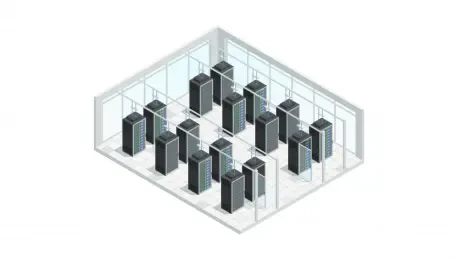The development of the ambitious €1.5bn data center campus in Ennis, Co Clare, has been met with bureaucratic and legal challenges, casting a shadow over its future prospects. Approved by An Bord Pleanála in April, the project spearheaded by Art Data Centres Ltd encompasses six data halls on the eastern outskirts of Ennis and aims to leverage AI and cloud technologies. However, despite these promising innovations, the project is currently impeded by a High Court judicial review initiated by opponents such as Colin Doyle, Friends of the Irish Environment CLG, Futureproof Clare, Martin Knox, and Christine Sharp. While a recent High Court ruling deemed an issue regarding a Leisler bat insufficient to halt the project, another matter concerning a derogation license remains unresolved.
Delays and Grid Connection Issues
Bureaucratic Bottlenecks
Tom McNamara, CEO of Art Data Centres Ltd, has expressed considerable frustration over what he terms “bureaucratic inertia,” particularly targeting EirGrid for delays in issuing a necessary grid connection. McNamara underscores the project’s critical importance for regional development, AI investment, and climate-resilient infrastructure. To expedite the process, he has appealed to Minister for Enterprise Peter Burke for intervention. The data center project has not only garnered robust support from international investors but has also received public endorsement from Taoiseach Micheál Martin last year, underscoring the strategic importance of the project for Ireland’s technological landscape.
EirGrid’s Role and Challenges
Since the initial application back in 2019, the project has faced persistent setbacks despite confirmed capacity at Ennis and extensive engagement under the CRU’s 2021/124 guidance. EirGrid’s lack of progress on the grid connection offer has fueled concerns regarding potential damage to Ireland’s international reputation if delays persist. McNamara has raised alarms that continued bureaucratic inertia not only jeopardizes the data center project but also diminishes Ireland’s attractiveness as a destination for future technology investments. While a spokesman for EirGrid cited confidentiality and declined to comment specifically on Art Data Centres Ltd’s grid connection issue, the absence of concrete steps forward adds to mounting uncertainties surrounding the project’s viability.
Legal Contention and Judicial Review
Judicial Review and Environmental Concerns
The High Court judicial review initiated by various opponents is a significant barrier to the project’s advancement. Notably, the recent High Court ruling deemed an issue concerning a Leisler bat as inadequate to halt progress. Despite this, a derogation license remains an unresolved matter in the legal discourse. These judicial and environmental concerns pose a substantial challenge, demanding intricate negotiations and legal maneuvering to secure the project’s continuation. The involvement of environmental groups such as Friends of the Irish Environment CLG and Futureproof Clare reflects broader ecological and community apprehensions that must be addressed to pave the way for a balanced approach to development.
Potential Impacts
While the High Court has currently ruled in favor of the project regarding specific environmental concerns, the overarching legal disputes remain critical factors influencing its future trajectory. The project’s opponents, referencing various environmental and socio-economic impacts, symbolize a broader resistance that represents a delicate balance between development and conservation. These challenges necessitate strategic legal efforts and potentially further governmental intervention, emphasizing the complexity and multifaceted nature of such large-scale developments. The resolution of these contentions holds key implications for not only the Ennis data center project but also sets precedents for future infrastructure developments in Ireland.
Calls for Government Intervention
Regional Development and International Standing
The bureaucratic inertia and persistent legal challenges surrounding the Ennis data center project highlight significant calls for governmental intervention to mitigate delays and ensure the project’s smooth progression. Tom McNamara has notably reached out to governmental figures such as Minister for Enterprise Peter Burke, emphasizing the critical importance of the project for regional development and climate-resilient infrastructure. Given the project’s strategic significance and endorsement by international investors and political figures, the role of governmental support and intervention has become a focal point in navigating the bureaucratic and legal complexities.
Urgent Need for Progress
As delays continue, McNamara warns of potential damage to Ireland’s international standing if bureaucratic bottlenecks and judicial uncertainties persist. The necessity of proactive governmental measures—both in expediting bureaucratic processes like grid connection approvals and mediating legal disputes—underscores the urgency of ensuring timely project advancement. The call for intervention reflects broader implications for Ireland’s technological investment landscape and highlights the critical importance of governmental agility in facilitating major infrastructure developments amidst complex challenges.
Future Steps and Considerations
The development of the ambitious €1.5 billion data center campus in Ennis, County Clare faces bureaucratic and legal hurdles, impacting its future. Initiated by Art Data Centres Ltd, the project, approved by An Bord Pleanála in April, features six data halls on Ennis’s eastern outskirts and aims to utilize AI and cloud tech. Despite these cutting-edge plans, a High Court judicial review by opponents like Colin Doyle, Friends of the Irish Environment CLG, Futureproof Clare, Martin Knox, and Christine Sharp, has delayed progress. The court recently ruled that concerns about a Leisler bat weren’t sufficient to stop the project, but another issue related to a derogation license remains unresolved. These hurdles cast uncertainty over the realization of the data center, considered pivotal for technological advancement and economic development in the region. This ongoing legal battle illustrates the complex intersection of environmental concerns and technological progress in modern infrastructure projects.









